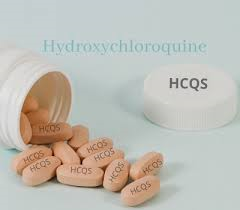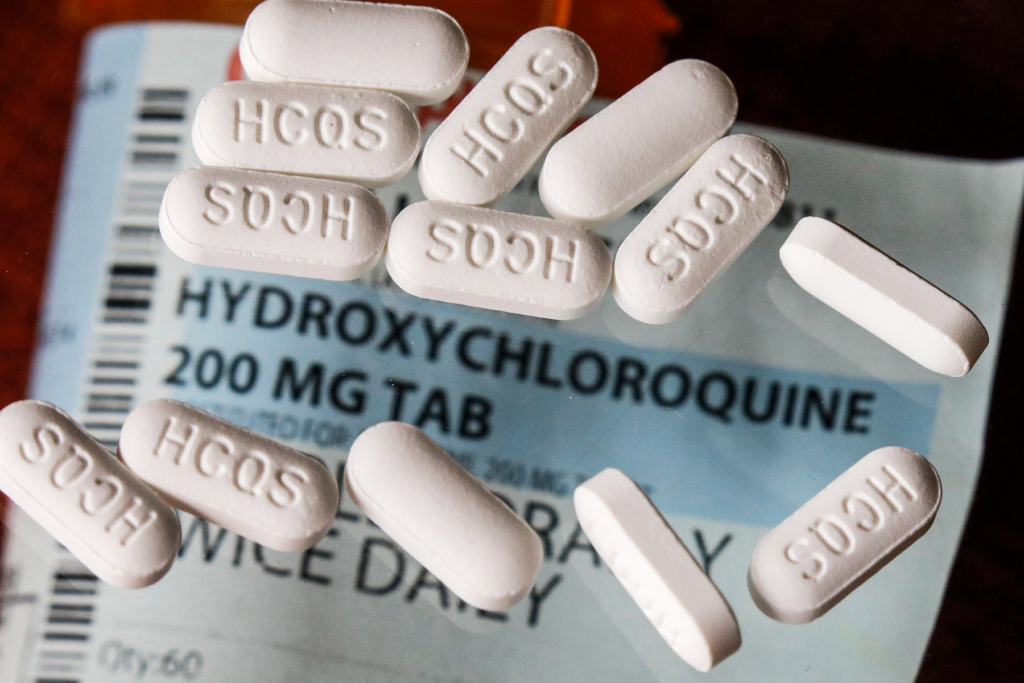Coronavirus disease 2019 (COVID-19), a global pandemic which is affecting human beings with an acute respiratory infectious illness by damaging multiple organ systems, including heart, lung, and blood. Most adults with COVID-19 experience fever, cough, and fatigue and then recover within one to three weeks. However, it becomes fatal for some patients who develop severe illness, followed by pneumonia and respiratory failure with continued progression to ARDS (acute respiratory distress syndrome).

Currently, no medication therapies have demonstrated the efficacy to prevent the progression of COVID-19 to severe illness, but several medicines available in the market have been proposed as potential therapies. One of such medicine is Hydroxychloroquine. In several studies, this molecule has demonstrated antiviral activity with the ability in modifying the activity of the immune system, this led to the hypothesis that it could be a potential treatment for COVID-19.
Hydroxychloroquine pharmacological aspect & uses:
Hydroxychloroquine is an antimalarial class of drug which acts by increasing pH within intracellular vacuoles and alter processes such as protein degradation by acidic hydrolases in the lysosome, assembly of macromolecules in the endosomes, and post translational modification of proteins in the Golgi apparatus. It is used in the treatment and prevention of acute attacks of malaria. Hydroxychloroquine also used to treat discoid or systemic lupus erythematosus, rheumatic disorders like rheumatoid arthritis, porphyria cutanea tarda and Q fever.
Economical aspects:
Since last two weeks, the name of Hydroxychloroquine became popularized all over the globe due to publication of some research studies on its efficacy. The World Health Organisation (WHO) listed hydroxychloroquine as an investigational drug for efficacy against COVID-19. Announcement of Hydroxychloroquine efficacy by the United States President, Trump has attracted huge attention. The US FDA approved the drug combination for the clinical trial in COVID-19 patients.

Hydroxychloroquine is being produced by various companies in generic form after its patent expiration. Sanofi will provide millions of doses for the treatment of about 300,000 COVID-19 patients in France. Sanofi is also working with Biomedical Advanced Research and Development Authority (BARDA) to develop vaccine candidate for the novel coronavirus, using its recombinant DNA platform. Novartis committed to donating up to 130 million 200mg doses of generic hydroxychloroquine to support COVID-19 pandemic response globally. Other big pharmaceuticals, including Teva and Mylan, will also produce the drug for COVID-19 treatment in infected patients.
Clinical Aspects
One of main reason for Trump’s statement is based on results of a French clinical study published in the journal-International Journal of Antimicrobial Agents with the title: Hydroxychloroquine and azithromycin as a treatment of COVID-19: results of an open-label non-randomized clinical trial. The results of this stated that “hydroxychloroquine treatment is significantly associated with viral load reduction/disappearance in COVID-19 patients and its effect is reinforced by azithromycin”. However, there are several concerns about the conduct of this study, that it ignored patients who took the drug and fared poorly. Currently, the journal that published it is reviewing the paper again and specified that “a correction to the scientific record may be considered.”
A research publication in the nature journal from Wuhan Institute of Virology with the title “Hydroxychloroquine, a less toxic derivative of chloroquine, is effective in inhibiting SARS-CoV-2 infection in vitro” concluded that Hydroxychloroquine has a good potential to combat the disease and this possibility awaits confirmation by clinical trials.
Some other facts about Hydroxychloroquine clinical studies for COVID-19 treatment:
There are many clinical trial studies ongoing for COVID-19 treatment molecules as per https://clinicaltrials.gov/. Currently, there are 68 studies active for evaluating safety and efficacy of hydroxychloroquine for the treatment of hospitalized patients with COVID-19.
National Institute of Health (NIH, the USA’s medical research agency, a component of the U.S. Department of Health and Human Services) is conducting a clinical trial, an ORCHID study, NCT04332991 (The Outcomes Related to COVID-19 treated with hydroxychloroquine among In-patients with symptomatic Disease study) to evaluate the safety and effectiveness of hydroxychloroquine for the treatment of adults hospitalized with coronavirus disease 2019 (COVID-19), with the first participants now enrolled in Tennessee. This is a blinded, placebo-controlled randomized clinical trial aims to enroll more than 500 adults who are currently hospitalized with COVID‑19 or in an emergency department with anticipated hospitalization.

However, there is very limited clinical evidence for supporting its efficacy on COVID-19 and this drug has many side effects which can cause cardiac arrhythmia, seizures, dermatological reactions, hypoglycemia etc.,
Any new molecule or any existing medicine in market (for new therapeutic indication) should go through a clinical study procedure for complete evaluation of its safety and efficacy. A minimum level of confidence on medicine’s safety profile can be gained through clinical studies. Without understanding the medicine’s complete profile, it is not advisory to announce or prescribe to patients any of medicines which are “not yet” proven in their effectiveness and safety profile.
Reference:
https://www.ncbi.nlm.nih.gov/pubmed/8278823 https://www.clinicaltrialsarena.com/projects/hydroxychloroquine/